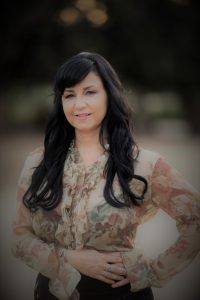Featuring insightful and eye-opening interviews with artists, managers, songwriters, executive producers, and more, “Quit the Chaos. Keep the Gig,” is a new series that takes a look at how substance use affects everyone in the music & entertainment industry.
 With music featured in NBC’s The Blacklist, Nashville, and Friday Night Lights, KP Hawthorn is a singer/songwriter who’s toured nationally as a member of CALICO the band and as a solo act. Presently, she’s recording songs as a member of a new group, The Hawthorns.
With music featured in NBC’s The Blacklist, Nashville, and Friday Night Lights, KP Hawthorn is a singer/songwriter who’s toured nationally as a member of CALICO the band and as a solo act. Presently, she’s recording songs as a member of a new group, The Hawthorns.
In conversation with Ron Roecker, KP discusses what it’s like to work with colleagues in recovery and how the music industry can be more difficult for those struggling with substance use.
What’s been your experience with people struggling with substance use in the entertainment business?
KP: I’ve seen a lot of it, it is sad to me. It always ends the same unless they can find their way out of it. I have seen some really good people turn in to the worst form of themselves. I have also been to meetings with bandmates who are recovering and have watched them take a victory over it.
I was with my bandmate when she received her 5 year chip on tour. It is truly a stunting problem. My friends who have gotten trapped in that lifestyle don’t seem to communicate on an adult level and it is impossible to know their motives when they are deep in it.
How has that affected your own business as a recording/touring artist, producer?
KP: It has been hard. The personality of the addict is so different than that of a healthy mind. I have tried to have compassion and be understanding but at the end of the day, you can find yourself becoming codependent with them. I have many friends I have worked with who have come out of it for a sober lifestyle and I am always fascinated by the transformation. It is a life long healing process and I admire anyone who can walk through that fire. I do have to separate myself from it in a workplace environment because people in the throes of addiction will bring chaos to a work situation.
What do you think touring musicians need to be able to either be a resource for someone struggling or for that person struggling?
KP: Honesty, compassion, and an ability to know where their scope of influence ends and begins. If you don’t have an expertise in dealing with this problem, don’t try to fix it. There are professional people and lots of organizations to help. It is very easy as a compassionate person to get caught up in someone else’s addiction. It is very destructive. The fact is that it is not simply an annoyance or something un-fun to be around. It can be life or death and it is a relationship destroyer.
Why are musicians more prone to substance use and overdose? Why do you think most artists who overdose die alone in their hotel room?
KP: I don’t know that musicians are more likely. I think the problem is rampant and it affects many aspects of our culture. Musicians tend to live more of a rebel lifestyle, out late at night, unstructured at times, traveling, etc. Sometimes it is hard to remember that we are “at work” and it can feel like a party.
If someone has a tendency toward addiction I assume it can be a lot harder to keep on a healthy path amid the parties and late nights and temptations.
What’s the most important need/solution for you as a touring artist/recording artist/producer when dealing with someone who is struggling with substance use?
KP: Structure and the ability to be honest and call out what is happening. As a non-drug user I have sometimes been blindsided by what is happening, not knowing the signs. If we don’t get honest about what is happening before our eyes, it can engulf everyone around.
Evo Health and Wellness has a unique approach in that you “don’t have to stop to start.” Total abstinence is not the initial approach but more of a full body, mind, spirit and soul to why people want to be numb to the world. Is that type of approach important today?
KP: I have learned in life how meditation can really be helpful. I know that sometimes to be an “artist” some feel that you have to experience some dark things personally. I would say that there is dark and light and in between all around and you have to have it as a personal experience in order to write about it.
Having peace and happiness in our own lives is often something we have to decide to have. Learning to use tools in life for coping with stress, dealing with relationships, and getting through down times is very important. One thing I have learned for myself is that when I do the thing I know I am supposed to do, no matter how uncomfortable or hard it seems, and I make it through to the other side, I have grown. The next time I am faced with something similar it gets easier.
Why is it important that musicians are able to cope and continue to work for society in general?
KP: The world needs art, it is the heart and soul of humanity. Art reflects life and in order to have a realistic reflection, the artist needs to understand the real aspects of achievement, societal struggles, goals, etc of life in society.
That is not to say that every artist/musician needs to live in the same kind of structure by any means, but society needs the artist as part of its body. If society and business doesn’t have an artistic perspective then I feel we would be a soulless waste.
Why do you do what you do?
KP: I do the things I do because I get one life on this planet and I want to feel fulfilled. I love to create beautiful things.
Learn more about KP Hawthorn.
Ron Roecker is an award-winning writer, as well as music/entertainment and brand marketing expert. His career includes Vice President of Communications & Artist Relations for the GRAMMY Awards, as well as a music/entertainment spokesperson for brands and media outlets including Nestle, Live Earth, Mattel, CNN, MTV, Entertainment Tonight, BBC, Today Show, Rolling Stone and more. Ron is a keynote speaker who talks about business lessons from Hollywood to Public Speaking and Crisis Management. For more information, visit www.bedifferently.com.
Evo Health and Wellness is an outpatient addiction treatment program that respects where you are and where you want to go. Clients set goals that work for them, whether they include complete abstinence or moderation. Evo sees success as lasting change in the client’s life, including physical health, movement towards personal goals, and their sense of connection and purpose. Evo’s program integrates psychotherapy, psychiatry, life coaching and somatic therapy. Learn more about why Evo works for Entertainment professionals.
